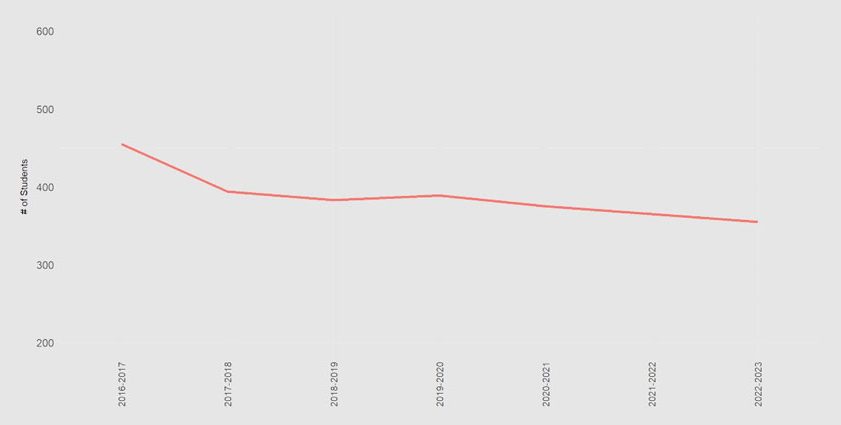GUELPH – The Upper Grand District School Board (UGDSB) is looking to increase alternative education options and opportunities for students to explore their own interests.
One pathway towards this is cutting Grades 9 and 10 from College Heights Secondary School (CHSS) in Guelph and establishing an alternative high school there.
CHSS will be home to a specialized school offering a range of alternative programming for students in Grades 11, 12, and 12+ and serve as the board’s “Alternative Education and Learning Centre Hub.”
The UGDSB approved the changes as part of a “Reimagining Alternative Education” plan during a meeting on Dec. 12.
The transition will be phased in – current CHSS students can remain at the school, but as of September 2024, no more Grade 9 students will be enrolled, and no more Grade 10 as of the following year.
“For decades, CHSS has offered unique, innovative and creative opportunities for all students with a commitment to equitable and inclusive learning,” states an alternative education action report from director Peter Sovran and superintendent Carlo Zen, presented to the board’s policy and priorities committee on Dec. 5.
“Enrolment at CHSS has been steadily declining over the past 10 years,” and this trend is expected to continue, the report states, making it a good candidate for an alternative education hub.
The board aims to make alternative education geographically accessible across Wellington, Guelph and Dufferin, and the report outlines three additional alternative education centres.
These will be located at Norwell District Secondary School in Palmerston, Orangeville District Secondary School, and St. George’s Continuing education in Guelph.
“These centres would serve to provide students with access to various programs and initiatives, fostering flexibility and personalized learning experiences while reducing the need for lengthy travel,” the report states.
Student enrolment will be based on an intake process undertaken in collaboration with high schools, UGDSB staff and community partners.
The programming and supports offered at these learning centres will include:
- online with flexible and self-paced coursework;
- continuing education for adult learners;
- supervised alternative learning with additional support and guidance;
- experiential programs with hands-on and immersive learning;
- co-operative education with work experiences;
- dual credits with colleges and apprenticeships;
- adult English as a second language programs;
- evening and summer academic offerings;
- specialized subjects including personal support worker programs, robotics, graphic design, and automotive; and
- partnerships with community groups, trade unions employers and service providers.
The plan was approved during the Dec. 12 meeting with one condition, added by trustee Laurie Whyte: that UGDSB staff provide quarterly reports regarding “all Grade 9 students’ progress and on supports in place for those who may be at risk of not being successful in 2024 to 2025 and for Grade 10 students in 2025 to 2026.”
Chair Ralf Mesenbrink said, “The expansion of program offerings, both at CHSS and at the hubs including in Dufferin and Wellington Counties will provide more opportunities for learners across the region.
“I am excited to see the availability of additional experiential learning extended across the region and outside the traditional school day and school year.”
Sovran said, “We know this will be a change for the CHSS community, but we are excited to see the expansion of the school’s program offerings, expanding alternative education in the board, and leaning into learning that is flexible and personalized.
“This plan builds on CHSS’ commitment in putting students at the centre of everything they do.”



